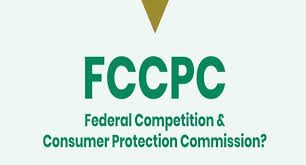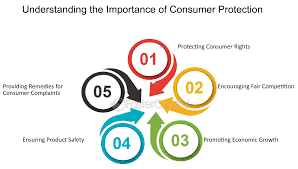


Exposing the Gaps & Empowering Change: Resolving Consumer Disputes in Nigeria’s Broken Protection System
Introduction
Consumer Protection And Disputes Resolution;
In the dynamic landscape of consumer rights and protections, Nigeria stands as a nation striving to ensure fairness and justice for its consumers. With the rapid growth of industries and markets, the need for effective consumer protection mechanisms has become paramount. However, despite regulatory frameworks in place, consumer protection disputes in Nigeria remain a significant concern.
In every progressive society, the balance between commerce and consumer rights forms a crucial aspect of sustainable economic development. Nigeria, with its rapidly expanding market and diverse population, is no exception. Consumer protection in Nigeria is not merely a theoretical construct; it is an essential component that safeguards the economic and social interests of individuals engaging in everyday transactions. Despite the existence of regulatory frameworks, many consumers in Nigeria still face significant challenges in enforcing their rights and resolving disputes with sellers, service providers, and corporations. This has raised pressing questions about the effectiveness of consumer protection mechanisms and the actual recourse available to victims of commercial exploitation or malpractice.
This discourse seeks to shine a light on the Nigerian consumer protection landscape, highlighting the legal frameworks, the mechanisms for resolving consumer disputes, and the bottlenecks that hinder effective enforcement. It is essential to understand that consumer rights are not limited to refunds or replacements; they encompass a broader spectrum of economic, health, and legal guarantees. The right to safety, the right to information, the right to choose, and the right to be heard are fundamental pillars of consumer protection that must be respected and upheld.
However, these rights often exist only on paper for many Nigerians. From faulty electrical appliances and adulterated products to unethical banking practices and substandard healthcare services, consumers across Nigeria often find themselves at the mercy of powerful businesses and unresponsive institutions. When disputes arise, the question becomes: where can consumers turn for justice, and how effective are these channels?
Several regulatory bodies in Nigeria are tasked with ensuring consumer protection. Notable among them are the Federal Competition and Consumer Protection Commission (FCCPC), the National Agency for Food and Drug Administration and Control (NAFDAC), and the Standards Organisation of Nigeria (SON). These bodies have, over time, implemented various policies and sanctions to address violations, but enforcement remains a persistent challenge due to underfunding, lack of awareness, bureaucratic red tape, and in some cases, corruption.
Furthermore, the dispute resolution mechanisms available to consumers—such as litigation, mediation, arbitration, and administrative hearings—are often mired in delays and technicalities that make access to justice a daunting task. Many consumers lack the financial means, legal literacy, or confidence to pursue claims, especially when pitted against well-resourced corporations.
Nevertheless, all is not lost. There has been a growing momentum around consumer advocacy in Nigeria, with NGOs, legal aid groups, and digital platforms championing the cause of consumer justice. Social media, in particular, has become a powerful tool for consumers to voice their grievances and hold companies accountable in real-time. The Nigerian judiciary, though overwhelmed, has also shown glimpses of activism in consumer rights cases, reaffirming the need for systemic reforms.
This introductory segment sets the stage for a deep dive into the realities of consumer protection in Nigeria—its strengths, weaknesses, and opportunities for reform. It underscores the need for a more responsive, consumer-friendly legal environment where rights are protected, disputes are swiftly resolved, and consumers can engage in commerce with confidence and dignity.
Understanding the Key Issues:
Consumer protection disputes in Nigeria encompass a wide range of issues, including product defects, false advertising, unfair contract terms, and inadequate services. These disputes often arise due to asymmetrical information between consumers and businesses, leading to exploitation and dissatisfaction.
Product Defects: One of the most common consumer complaints revolves around product defects. Whether it’s substandard goods, malfunctioning electronics, or expired consumables, consumers often find themselves on the receiving end of faulty products.
False Advertising: Misleading advertisements lure consumers into purchasing products or services under false pretenses. From exaggerated claims to deceptive pricing strategies, false advertising erodes consumer trust and contributes to disputes.
Unfair Contract Terms: Many consumer contracts contain clauses that unfairly favor businesses, leaving consumers at a disadvantage. These terms may include hidden fees, unilateral modification rights, or restrictive cancellation policies, limiting consumers’ rights and freedoms.
Inadequate Services: Poor service delivery, whether in the hospitality industry, telecommunications, or healthcare, often leads to consumer dissatisfaction. Consumers expect value for their money and can quickly escalate disputes when their expectations are not met.
Legal Framework for Consumer Protection:
To address these challenges, Nigeria has implemented various laws and regulations aimed at safeguarding consumer rights. The Consumer Protection Council (CPC) Act, the Sale of Goods Act, and the Food and Drugs Act are among the key legislations governing consumer protection in the country. Additionally, the Federal Competition and Consumer Protection Commission (FCCPC) plays a vital role in enforcing these laws and ensuring compliance from businesses.
Resolving Consumer Protection Disputes:
Despite the existence of regulatory bodies and legal frameworks, resolving consumer protection disputes in Nigeria can be a daunting task. Many consumers face barriers such as lack of awareness, financial constraints, and bureaucratic hurdles when seeking redress. However, several avenues exist for resolving disputes effectively:
1. Alternative Dispute Resolution (ADR): ADR mechanisms, including mediation and arbitration, offer consumers a faster and more cost-effective means of resolving disputes outside the court system. These methods encourage dialogue between parties and often lead to mutually beneficial outcomes.
2. Consumer Advocacy Groups: Non-governmental organizations (NGOs) and consumer advocacy groups play a crucial role in empowering consumers and amplifying their voices. These organizations provide education, advocacy, and support to consumers navigating the complexities of dispute resolution.
3. Legal Assistance: Consumers facing complex or contentious disputes may benefit from seeking legal assistance. Legal professionals specializing in consumer protection can provide expert guidance and representation throughout the dispute resolution process.
4. Online Platforms: With the rise of e-commerce and digital transactions, online platforms offer convenient avenues for consumers to resolve disputes. Many businesses have dedicated customer service channels or online complaint portals where consumers can lodge their grievances and seek resolution.
Empowering Consumers for a Fairer Future:
As Nigeria continues to evolve economically and technologically, empowering consumers remains essential for sustainable development and economic growth. By enhancing consumer awareness, strengthening regulatory enforcement, and promoting collaborative dispute resolution mechanisms, Nigeria can foster a culture of trust and accountability in its marketplace.
Conclusion:
Consumer protection disputes in Nigeria pose significant challenges to both consumers and businesses alike. However, by prioritizing transparency, accountability, and fairness, stakeholders can work together to mitigate disputes and ensure a thriving marketplace that benefits all. Through proactive measures, effective regulation, and empowered consumers, Nigeria can pave the way for a future where consumer rights are upheld and protected.
The journey toward achieving effective consumer protection in Nigeria is both complex and urgent. As explored in the preceding analysis, while the country possesses a commendable array of legal provisions and regulatory institutions aimed at protecting consumers, the implementation and enforcement of these measures fall critically short. The real test of any legal system is not in the elegance of its statutes but in its capacity to deliver tangible justice to the people it is designed to serve.
The growing wave of consumer complaints in Nigeria reflects a fundamental mistrust in traditional institutions to provide timely and fair resolutions. Whether it is in the banking sector, telecommunications, health services, retail, or e-commerce, consumers often feel neglected, mistreated, or outrightly defrauded. The existing redress mechanisms, though theoretically sound, must undergo urgent reforms to become more accessible, affordable, and efficient.
It is clear that addressing consumer protection challenges in Nigeria requires a multifaceted approach. Strengthening regulatory institutions like the FCCPC, NAFDAC, and SON is imperative. These agencies need not just more funding and manpower but also greater autonomy and transparency in their operations. Enforcement must be proactive and impartial, with strict penalties for corporate misconduct and swift compensation for aggrieved consumers.
Equally important is the role of public education and awareness. A significant number of Nigerians are unaware of their rights as consumers or the avenues available for lodging complaints. Consumer education campaigns—targeted especially at rural populations, informal workers, and vulnerable groups—must be prioritized to equip citizens with the knowledge and confidence to demand accountability.
Furthermore, the legal profession and judiciary must rise to the challenge. Lawyers have a duty to make legal services more consumer-friendly and less intimidating, while judges must ensure that consumer protection cases are treated with the urgency and seriousness they deserve. Special consumer protection courts or tribunals, with simplified procedures and timelines, could be established to accelerate dispute resolution.
Technology also presents an exciting frontier for enhancing consumer protection. Online portals for complaints, mobile legal aid platforms, and digital dispute resolution systems can reduce barriers and enhance transparency. Social media and e-commerce rating systems should be integrated into the broader regulatory framework to foster consumer empowerment and corporate accountability.
Ultimately, the goal should not just be to resolve disputes after the fact but to create a commercial environment where such disputes are less likely to arise. This involves enforcing ethical standards in business, encouraging customer service excellence, and promoting corporate social responsibility. It is a vision where businesses see consumers not as adversaries but as partners in progress.
In conclusion, the path to robust consumer protection in Nigeria is a work in progress—but it is achievable. By addressing institutional weaknesses, promoting legal empowerment, leveraging technology, and fostering a culture of accountability, Nigeria can build a consumer rights system that commands respect and restores trust. The protection of consumers is not just a legal necessity—it is a moral and economic imperative that must be pursued with passion, purpose, and persistence.
· Consumer Protection
· Dispute Resolution
· Product Defects
· False Advertising
· Unfair Contract Terms
· Inadequate Services
· Regulatory Framework
· Consumer Advocacy
· Alternative Dispute Resolution (ADR)
· Consumer Rights
· Legal Assistance
· Federal Competition and Consumer Protection Commission (FCCPC
Contact Us
Chaman Law Firm today. Our offices are conveniently located in Lagos, FCT Abuja, Ogun State, and the UK. We are readily available to assist you with your legal needs. Whether you require consultation, representation, or ongoing legal support, Chaman Law Firm is your trusted partner.
Call us at 08065553671 or email us at info@chamanlawfirm.com to schedule a consultation.


